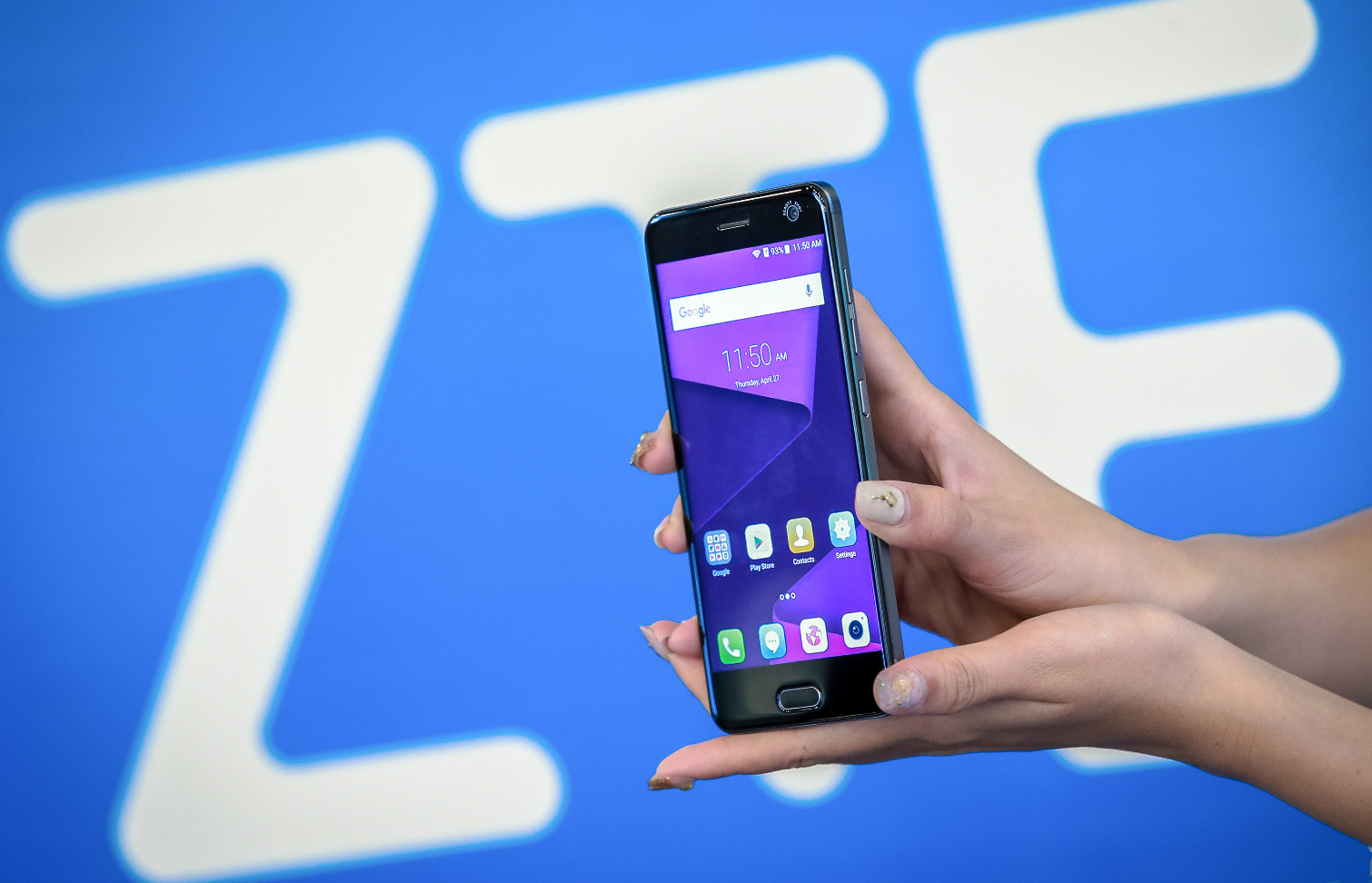ZTE Just Dealt Major Blow by US
ZTE is going to have some trouble making phones for the United States. The Chinese company was just hit by a ban on American exports from the Department of Commerce.
Here at Tom’s Guide our expert editors are committed to bringing you the best news, reviews and guides to help you stay informed and ahead of the curve!
You are now subscribed
Your newsletter sign-up was successful
Want to add more newsletters?

Daily (Mon-Sun)
Tom's Guide Daily
Sign up to get the latest updates on all of your favorite content! From cutting-edge tech news and the hottest streaming buzz to unbeatable deals on the best products and in-depth reviews, we’ve got you covered.

Weekly on Thursday
Tom's AI Guide
Be AI savvy with your weekly newsletter summing up all the biggest AI news you need to know. Plus, analysis from our AI editor and tips on how to use the latest AI tools!

Weekly on Friday
Tom's iGuide
Unlock the vast world of Apple news straight to your inbox. With coverage on everything from exciting product launches to essential software updates, this is your go-to source for the latest updates on all the best Apple content.

Weekly on Monday
Tom's Streaming Guide
Our weekly newsletter is expertly crafted to immerse you in the world of streaming. Stay updated on the latest releases and our top recommendations across your favorite streaming platforms.
Join the club
Get full access to premium articles, exclusive features and a growing list of member rewards.
ZTE is going to have some trouble making phones for the United States. The Chinese company was just hit by a ban on American exports from the Department of Commerce.

That ban will keep ZTE from getting parts from U.S.-based suppliers such as Qualcomm, Intel, Microsoft and Dolby for seven years. Qualcomm is perhaps the biggest loss for ZTE, as it will be difficult to make phones that work in the U.S. without the mobile processor platforms Qualcomm builds. (There are other processors that should work fine on spectrum in Europe and Asia.) It's unclear how this will affect upcoming phones from ZTE.
This comes as punishment for illegally shipping telecommunications equipment to Iran and North Korea. As part of a plea deal, ZTE was supposed to reproach any employees involved and revoke bonuses. But according to the Department of Commerce, bonuses were paid in full. The company paid monetary fines, and also agreed that it would give up its export rights if it failed to rebuke its employees. Now, the U.S. is pulling the trigger.
"ZTE made false statements to the U.S. Government when they were originally caught and put on the Entity List, made false statements during the reprieve it was given, and made false statements again during its probation," Secretary of Commerce Wilbur L. Ross, Jr. said in a statement.
Tom's Guide has reached out to ZTE for comment, and will update if we hear back.
The move could have repercussions for budget phone shoppers. While ZTE makes a range of models, it's made particular in-roads in the U.S. with budget handsets that are sold through discount and prepaid carriers.
Chinese phone companies have been under increased scrutiny lately. U.S. intelligence agencies have cited potential Chinese espionage as a concern, causing carriers to back out of selling Huawei's Mate 10 Pro. We did a deep dive on Huawei and ZTE, and while governments certainly see the phones as a risk, there is little evidence that ZTE and Huawei are spying on you, specifically.
Get instant access to breaking news, the hottest reviews, great deals and helpful tips.
Andrew E. Freedman is an editor at Tom's Hardware focusing on laptops, desktops and gaming as well as keeping up with the latest news. He holds a M.S. in Journalism (Digital Media) from Columbia University. A lover of all things gaming and tech, his previous work has shown up in Kotaku, PCMag, Complex, Tom's Guide and Laptop Mag among others.
-
xurocca "This comes as punishment for illegally shipping telecommunications equipment to Iran and North Korea."Reply
Wow, the current administration doing something ethical?
Well, even a broken clock is right twice a day even if somehow Trump manages just once.. -
shawndugout13 Why does the story go off script into they see no spying on you, when the reason is "This comes as punishment for illegally shipping telecommunications equipment to Iran and North Korea. As part of a plea deal, ZTE was supposed to reproach any employees involved and revoke bonuses. But according to the Department of Commerce, bonuses were paid in full. The company paid monetary fines, and also agreed that it would give up its export rights if it failed to rebuke its employees. Now, the U.S. is pulling the trigger."Reply
and "ZTE made false statements to the U.S. Government when they were originally caught and put on the Entity List, made false statements during the reprieve it was given, and made false statements again during its probation," Secretary of Commerce Wilbur L. Ross, Jr. said in a statement." Do the crime. Do the time.
 Club Benefits
Club Benefits






